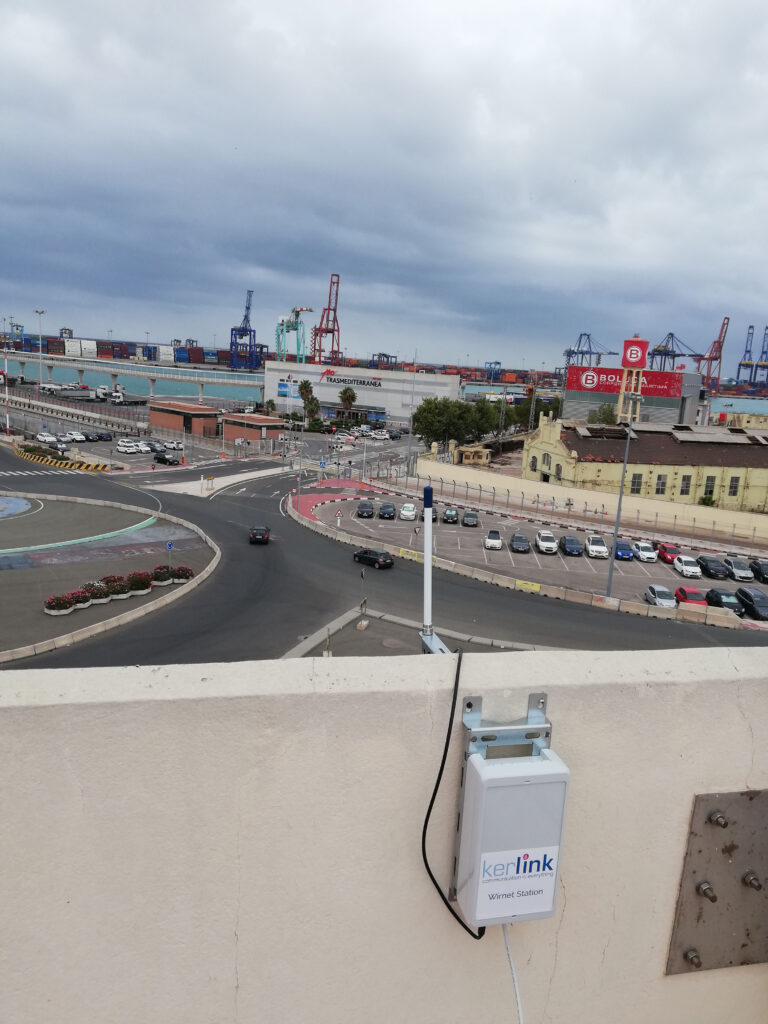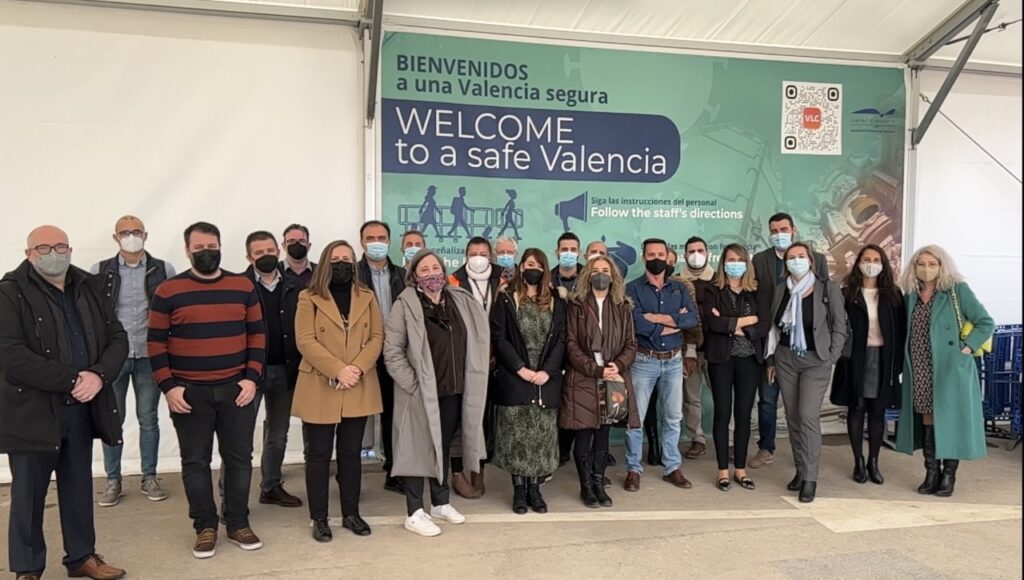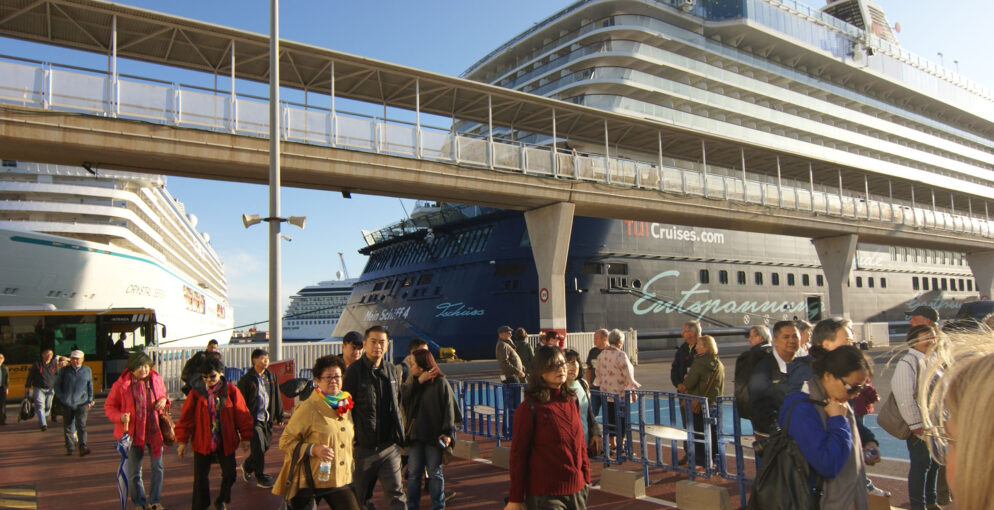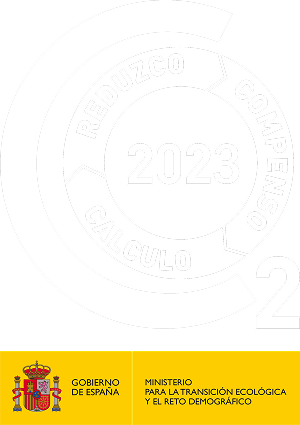Valencia – 09.02.22. Fundación Valenciaport, in collaboration with Turisme Comunitat Valenciana and Fundación Santa María la Real, has organised this week a study visit in the framework of the European project HERIT-DATA to show the results obtained in the pilot test developed to improve the monitoring and management of cruise flows in strategic areas of the city of Valencia.
The main objective of the HERIT-DATA project, co-financed by the Interreg MED programme, is to promote sustainable and responsible tourism management with the historical and cultural heritage in cities located in the MED regions. To this end, the project details a set of activities that explore the provision of analysis and planning tools to those responsible for tourism policies at local and regional level, taking advantage of the latest technologies and big data in terms of data collection and processing.
Specifically, this pilot project, led by Fundación Valenciaport, has included two components: sensors for monitoring the flow of cruise ship passengers and a platform for the management of cruise ship stopover announcements. It has also been completed with a third component coordinated by the Santa María la Real Foundation: sensors for monitoring the state of conservation of buildings of cultural and heritage interest. The data from all these sensors are introduced into the Snap4City platform, a multifunctional Internet of Things tool that allows, among other things, the management of Smart Cities through the storage, processing, and visualisation of data in real time. The results of the pilot include benefits such as knowing and reporting in real time the number of people present in the city’s tourist sites; knowing the behaviour of the flow of cruise ship tourists and thus being able to take measures to improve the experience of their visits; or knowing the percentage of cruise ship tourists compared to other visitors at the measurement points and thus knowing the weight of cruise ships in mass tourism, among others.

Once the solutions have been tested, Fundación Valenciaport, Turisme Comunitat Valenciana and Fundación Santa María la Real, as part of the project’s capitalisation activities, have organised this week a study visit day with the objectives of explaining to the main stakeholders the results of the actions developed in Valencia within the framework of Herit-Data; showing the participants examples of the functioning of the technologies applied in the pilot: scorecard, application and sensors; and defining possible collaborations for the exploitation of the data with the main agents that have a relevant role in the tourism management of Valencia.
During this study visit, members of the project consortium from the city of Dubrovnik (Croatia) and the Occitanie Region (France) travelled to Valencia to learn about the best practices of tourism management in Valencia from Turisme Comunitat Valenciana, Visit Valencia and the Port Authority of Valencia, in order to subsequently analyse their potential for capitalisation in their region. In addition, a meeting was held with the main agents interested in tourism issues in the Valencian Community to explain in detail the results of the pilot developed in the city of Valencia. Representatives of the Provincial Councils of Valencia, Castellón and Alicante, representatives of the Valencia City Council, as well as experts in cultural heritage conservation and representatives of other tourist destinations with cultural heritage, among others, have been invited to this meeting.
Finally, all participants will have the opportunity to visit all the sensors installed in Valencia as part of the project.

Other pilot tests carried out at HERIT-DATA:
HERIT-DATA has involved six pilot cities in which different technological solutions have been tested to improve the management of tourist flows whose data will be managed through HERIT-DATA’s SNAP4CITY platform: Dubrovnik (Croatia), Pont du Gard (Occitania Region, France), Ancient Olympia (Western Greece), Florence (Tuscany Region, Italy), Mostar (Bosnia-Herzegovina) and Valencia (Valencian Community, Spain).
Valencia Tourism:
The tourist attractiveness of the city of Valencia is indisputable, more than 2 million tourists visited the city in 2019 before the arrival of COVID. Similarly, the interest of cruise passengers has also increased, with the number of cruise passengers arriving in the port of Valencia increasing by more than 125% (more than 435,000 in 2019).


